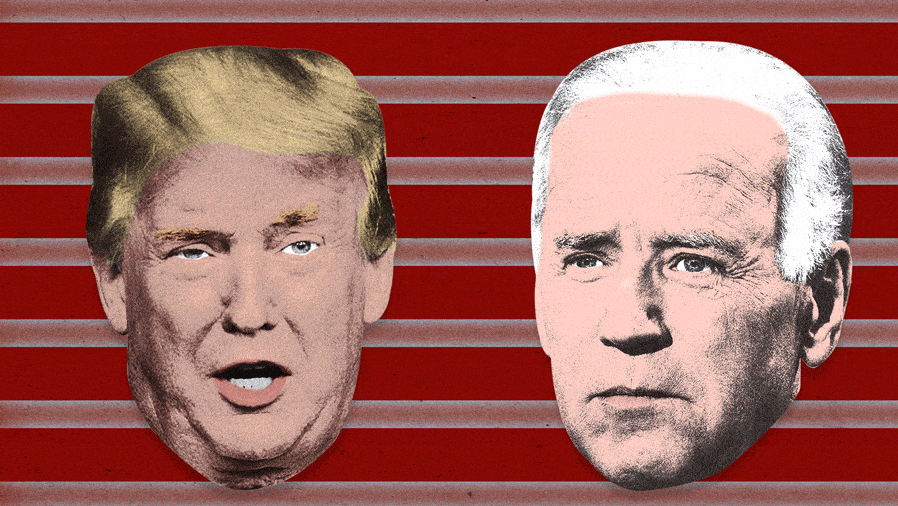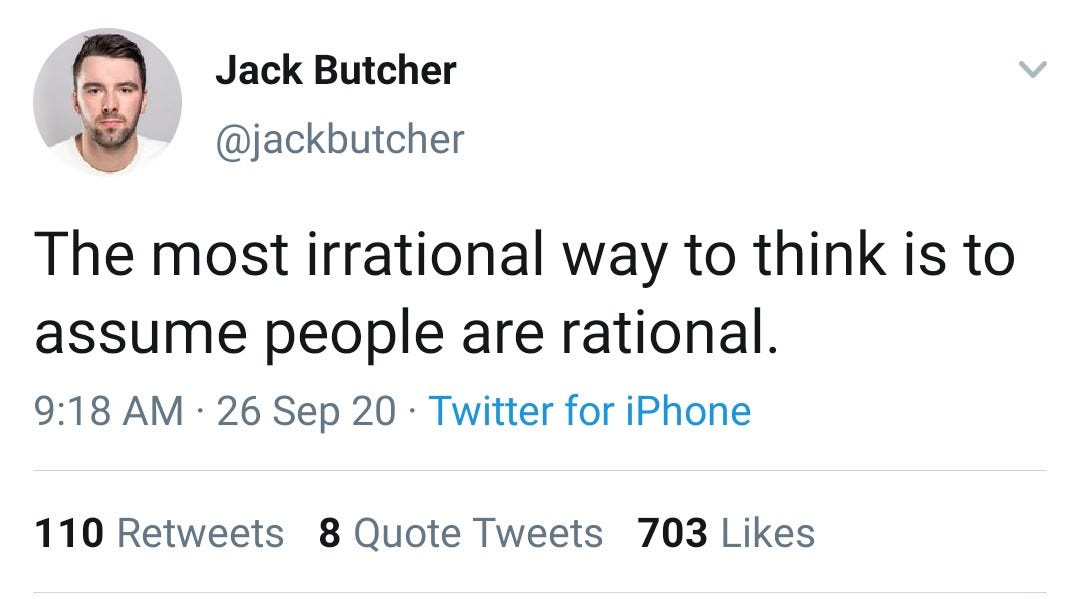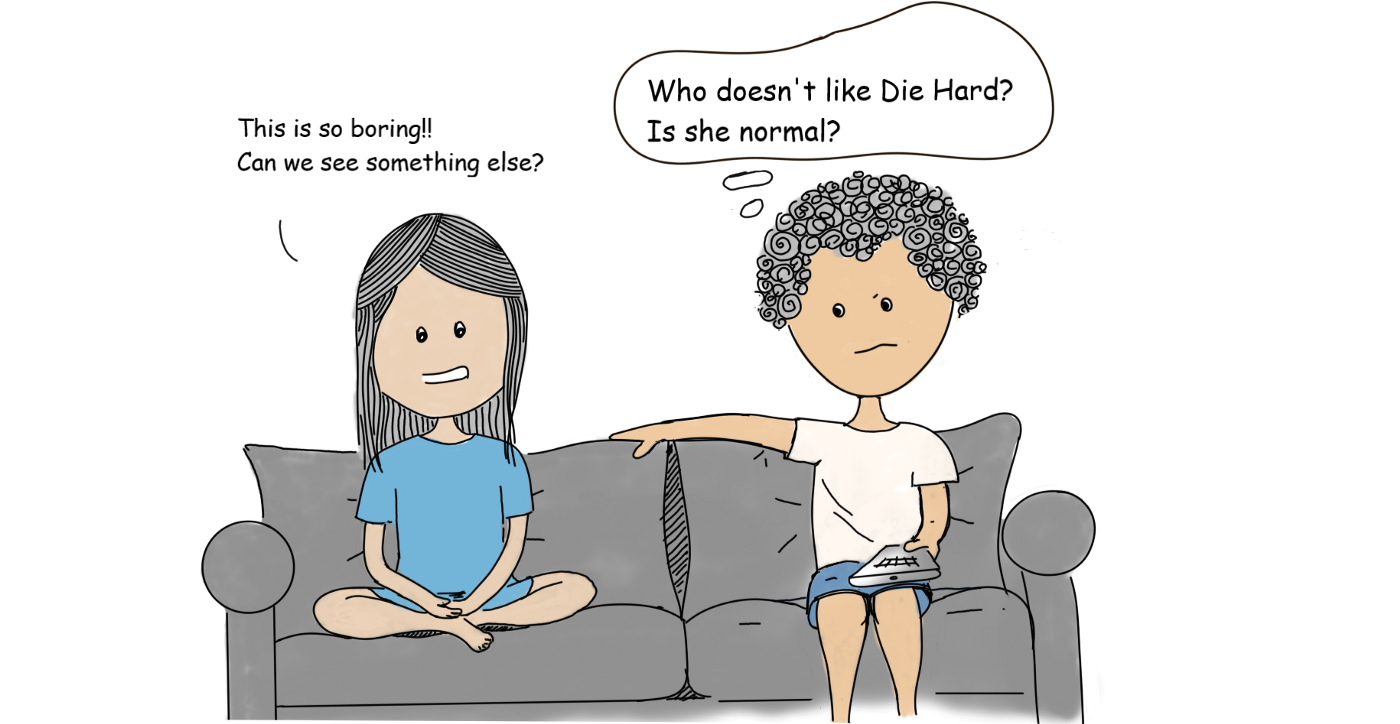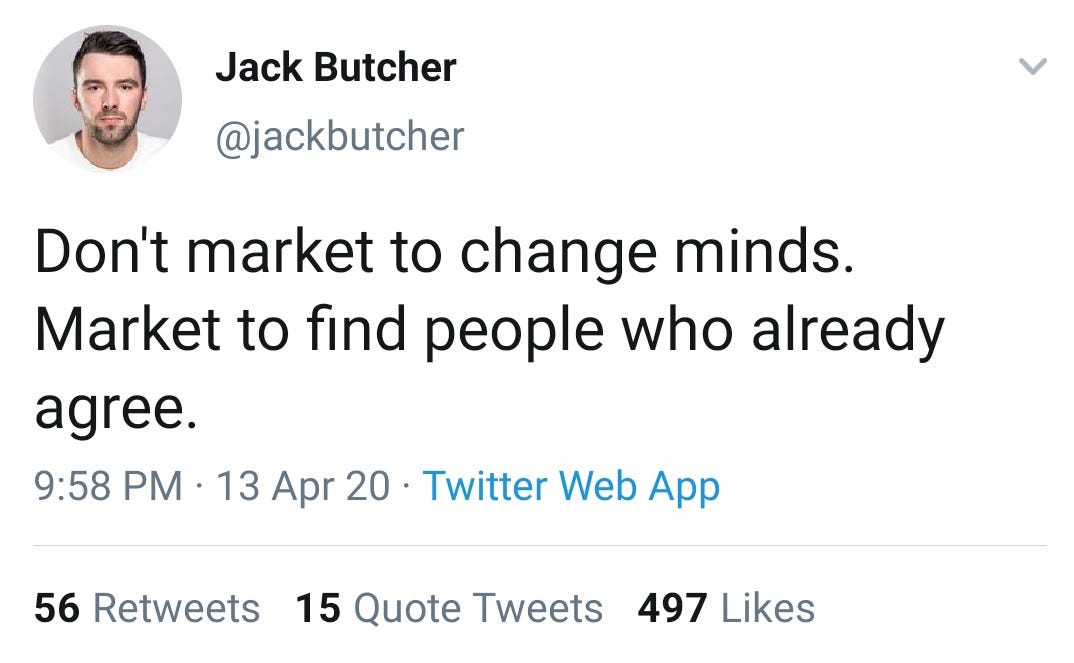Trump's 💩 show, 📚 clever communication strategy, or both?
The five communication misconceptions you have about the Trump-Biden presidential debate, and why most of us are getting it wrong
My Monday post about Coinbase CEO's take on his company's mission helped me crystalize the sort of writing I love most. It's taking an acute business/social/political topic and analyzing it from the communication angle: the good, the bad, and the ugly.
The first presidential debate of the 2020 US elections might not have delivered a lot of the good, but it certainly didn't disappoint on the bad and the ugly. Was it really a "shitshow," a "hot mess inside a dumpster fire," and a '"complete disaster" as labeled by CNN? Or somewhat "contentious and at times personal" as Fox News claim? Why do I think most of us are biased when watching a debate and get it wrong? And why recognizing the most common communication misconceptions might help you look at what you've seen on the screen from a different perspective?
Why are we getting it wrong?

Photo Illustration by Kelly Caminero/The Daily Beast/Getty
Firstly, in the weird Covid-19 world of 2020, yesterday's debate did deliver on entertainment value. BuT iT iS nOt AbOuT eNtErTaInMeNt, It Is AbOuT tHe FuTuRe Of DeMoCrAcY, Dmytro! I know, I know - still, since Champions League football on empty stadiums is about as exciting as watching paint dry, yesterday wasn't my worst Tuesday night at all.
Now, back to serious business. Watching CNN, scrolling Twitter, and reading this morning's papers, I see all sorts of opinions on the Trump-Biden debate. The aim of this post is not to determine the winner, nor to vent out my emotions.
My angle is different - the debate is a form of communication (which happens to be my soft spot topic). And what is the one thing that has a massive impact on conclusions we derive from any form of communication? Right - perception.
We all perceive verbal and non-verbal communication (debate, by the way, was both - re-watch Trump's vs. Biden's body language) differently. A vast number of factors influence this perception. Including the biases.
And because of these biases - we all (including myself) get many things about yesterday's show WRONG. Or, let me instead call it imprecise and inexact - because there isn't necessarily Right vs. Wrong here.
So, what are the biases I'm talking about?
Bias 1: Having rational expectations

Jack nails this first bias with the above Tweet. Many of us expect the debate to be a rational conversation between two "presidential" individuals. Talking about future policies and previous wins, and being queried by each other on not-so-successful episodes of their careers to date. Sort of like a job interview in which you pit two final-round candidates against each other.
But what if we don't get rational candidates (or, at least, one of them isn't)? What if at least one of our candidates is willing to exploit the fact that voters aren't rational? And, instead of appealing to the senses of American citizens - he appeals to irrational, perception-based fears, concerns, and desires?
Clue: that's precisely what happened yesterday.
Bias 2: Others are like me/my family/my closest circle

Source: UxMag.com
Psychologists call this consensus bias or false consensus effect. This bias causes us to assume that the general population has beliefs, values, and personal qualities similar to ours.
It goes like this: how can people not see that Candidate X is a crook, a liar, a manipulator? I see it, everyone in my household sees it, people I follow on Twitter see it. How is it even possible that someone else can think differently?
But looking at approval ratings for both candidates and post-debate polls, one should realize that we aren't all the same. Trump's approval rating oscillates around 40% these days. So, even if everyone you know votes Biden - 4 out of 10 Americans are not like you.
Bias 3: Debate helps convince undecided voters

I have a strong feeling Trump brushed up on audience building, product-market fit, and other buzzwords of 2020. Whether you like him or not, he is good at this stuff.
Most of us assume candidates use a presidential debate to convince people who have not yet decided on their vote. Except this is not what happened yesterday.
Heather Cox Richardson summed it up perfectly in yesterday's post in her "Letters from an American" Substack (great read, by the way):
“Trump long ago gave up the pretense that he wanted to win a majority of voters. For months now, he has made no effort to reach outside of his base. Instead he has focused on solidifying and radicalizing it…
Trump set out tonight not to convince undecided voters to support him, but rather to harden his supporters…”
Trump was not trying to convince undecided voters - he consciously capitalized on his existing base instead.
Bias 4: Voters can see through lies easily

Source: Farnam Street
This guy disagrees. He's Daniel Kahneman, Nobel prize winner in Economic Sciences, one of the fathers of Behavioural Economics, and the author of a great book, "Thinking: Fast and Slow."
Daniel argues that:
“A reliable way to make people believe in falsehoods is frequent repetition, because familiarity is not easily distinguished from truth. Authoritarian institutions and marketers have always known this fact. But it was psychologists who discovered that you do not have to repeat the entire statement of a fact or idea to make it appear true.
People who were repeatedly exposed to the phrase “the body temperature of a chicken” were more likely to accept as true the statement that “the body temperature of a chicken is 144°” (or any other arbitrary number).
The familiarity of one phrase in the statement sufficed to make the whole statement feel familiar, and therefore true. If you cannot remember the source of a statement, and have no way to relate it to other things you know, you have no option but to go with the sense of cognitive ease.”
For anyone wondering "why repeat lies if you will be fact-checked, and found out" - actually, the more you repeat a lie (in different ways) - the more likely it is people will believe you. Unethical, yet scientifically proven.
Bias 5: Debate watchers in the US and abroad have similar priorities

Source: NASA
The last bias is a special tribute to people keenly watching the US presidential debate from abroad.
Foreign observers tend to think American voters care about the same issues as their humble selves. They sit on their couches in France, Germany, or Jamaica (me!) and believe that people in the US of A prioritize policies on climate change, Putin, North Korean nukes, and Chinese moves in the Southern Sea.
American voters, of course, are interested in all those. To some extent. But, they have historically been more focused on domestic issues when selecting their presidential candidates. So choosing between (less immediately tangible) global warming and (more immediately discernible) prospects of lower gasoline prices - don't be surprised when a significant proportion of Americans will go for the latter.
So, what's the conclusion?
Like I said earlier - I am not interested in calling this debate's winners and losers. I am merely trying to illustrate that each of us has their unique perception of the events of yesterday. Which is influenced by several biases.
To sum up:
Perception influences the way we view reality. You are not as rational as you think. Other people don’t think same way as you do. Debate doesn’t have to be about convincing people with opposite viewpoints - it can also be (rightly or wrongly) used to solidify an already existing base. Lying works. Many Americans do put America first, and the rest of the world second.
Recognizing your own biases should help you all look at yesterday's debate from a different viewpoint. It's not about agreeing or disagreeing.
It's about broadening your perception to the point where you can acknowledge what influences it. And how there are millions of alternative perceptions out there.
My favorite Scott F. Fitzgerald's quote is: "The test of a first-rate intelligence is the ability to hold two opposed ideas in mind at the same time, and still retain the ability to function."
Just think about that. And then - think about yesterday's debate, again.
If you liked this longread about how biases determine our perception of the presidential debate - feel free to hit the "Subscribe now" button below. I write about communication by top people every week (or more often).
Catch you then
Dmytro



